Campus News Summer 2016
Haas appointed to state education commission
President Thomas J. Haas will lead Gov. Rick Snyder’s commission on Michigan’s education system.
Haas will chair the Education Commission that will be composed of 25 members who will study pre-K through 20. They have backgrounds in education, business, government or nonprofit entities, and have an interest and expertise in education and successful outcomes.
“I am honored to accept the request of the governor to chair this important commission,” said Haas. “We will collaborate and undertake the critical mission of designing a pre-K through 20 continuum that will shape the next generation of educated citizens essential to our state’s continued economic health.”
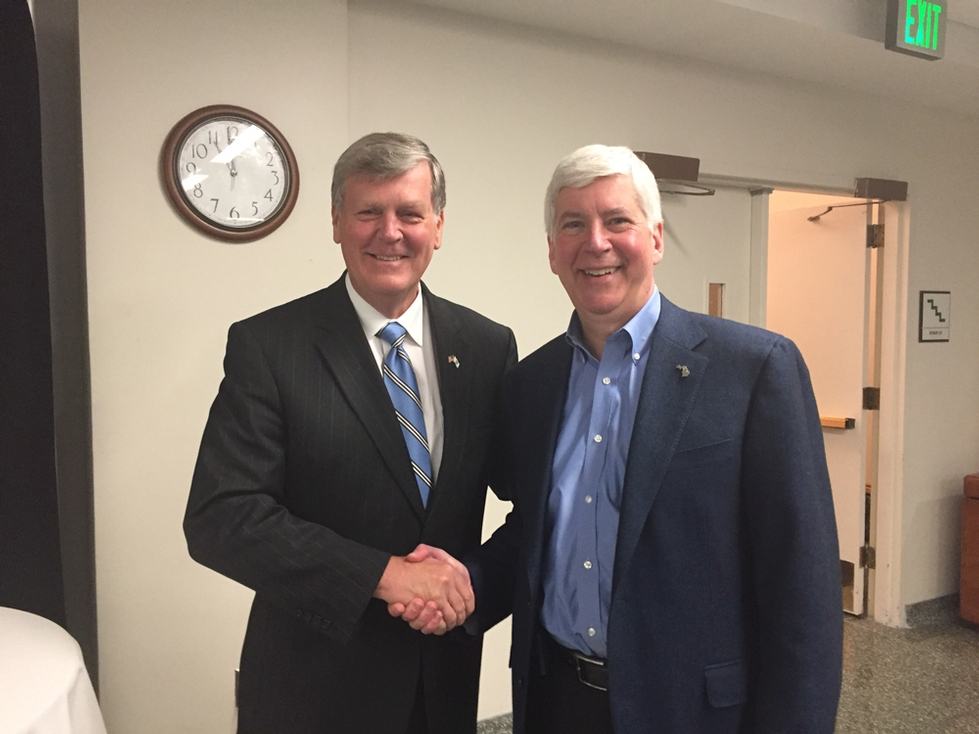
President Thomas J. Haas (left), shakes hands with Gov. Rick Snyder; Haas was appointed to Snyder’s education commission.
Snyder made the announcement in late May following his March executive order, which created the 21st Century Education Commission. The P20 Education Commission will analyze top performing states and nations to determine how their systems of education lead to successful career credentialing and post-secondary education, recommend changes to Michigan’s system and prioritize those recommendations.
The commission must finish its work and issue a final report to the governor for his consideration no later than February 28.
Directors cup returns to Fieldhouse trophy hall
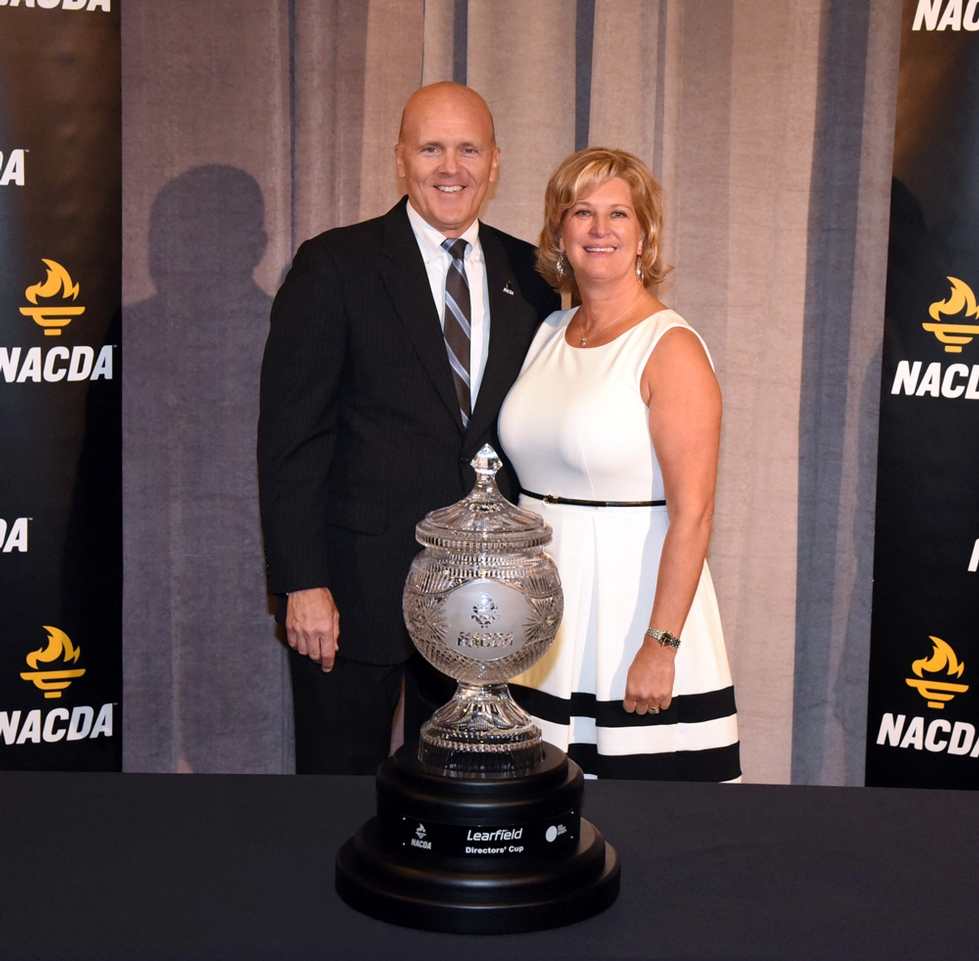
Tim and Terry Selgo stand behind the Learfield Sports Directors' Cup, presented to Grand Valley for having the top NCAA Division II athletic program.
For the third consecutive year, Grand Valley has earned the Learfield Sports Directors’ Cup trophy, known as the all-sports trophy, for having the nation’s top NCAA Division II athletic program.
Grand Valley has earned 11 Directors’ Cup trophies in the last 13 years. The scoring system is based on the national finishes of seven men’s and seven women’s sports.
Highlighted by a national championship in soccer, the Lakers recorded 11 top five finishes: women’s cross county (second), football (third), women’s basketball (third), women’s indoor track and field (third), men’s cross country (fourth), women’s golf (fourth), men’s outdoor track and field (fourth), women’s outdoor track and field (fourth), and women’s swimming and diving (fifth) and men’s indoor track and field (fifth).
Provost announces 2017 retirement
Provost and Executive Vice President for Academic and Student Affairs Gayle R. Davis will retire next summer.
Davis announced her intentions to faculty and staff members in a message July 11. She was appointed provost in 2002 and became only the second person in Grand Valley history to hold the position. During her tenure, she shepherded a major reorganization of the university’s colleges and oversaw major growth in enrollment and significant success in retaining students through graduation.
President Thomas J. Haas noted Davis’ many accomplishments and her campus leadership.
“Gayle has left an indelible mark on Grand Valley and Michigan,” Haas said. “She’s the consummate academic leader, and she worked with all groups on and off campus, positioning Grand Valley for the future. Student success is Gayle’s North Star. Her efforts with faculty and staff in restructuring a 21st century university led to increasing enrollments and a record number of graduates through the application of relevant and rigorous curriculum and co-curricular programming.
"She also provided service to our community, making it a better place to work and live. I could not have asked for a better partner.”
Haas said the university will conduct a nationwide search for Davis’s successor. The search will be co-chaired by Jon Jellema, recently retired associate vice president for Academic Affairs and associate professor emeritus of English; and Teri Losey, secretary to the Board of Trustees and executive associate to the president.
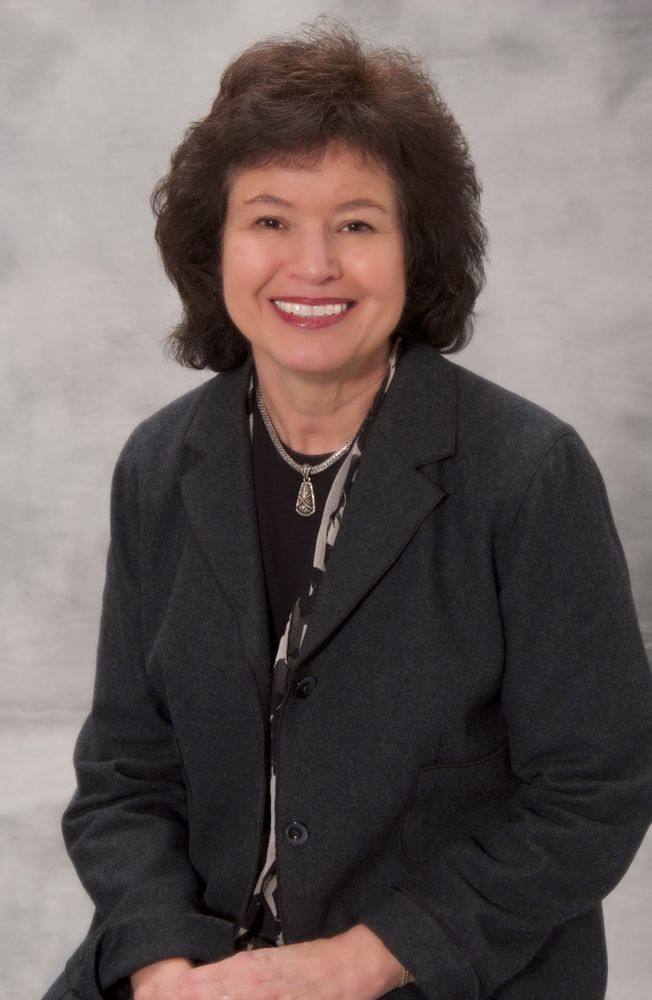
Gayle R. Davis
Trustees adopt budget, set tuition
Grand Valley’s Board of Trustees adopted the university’s fiscal year 2017 budget and set tuition rates for the academic year at its July 15 meeting on the Allendale Campus.
The tuition increase complies with the state’s tuition cap and keeps Grand Valley’s tuition in the bottom half of all Michigan universities. The budget raises financial aid, in keeping with Grand Valley’s mission to increase access to Michigan’s students.
Trustees approved increasing tuition by $221 per semester, bringing annual tuition to $11,520 for a full-time undergraduate Michigan resident. The budget includes $44 million in financial aid for students, which is an increase of more than $3.5 million to be awarded in the form of scholarships or grants. Financial aid is increasing 9 percent, while tuition is increasing 4 percent.
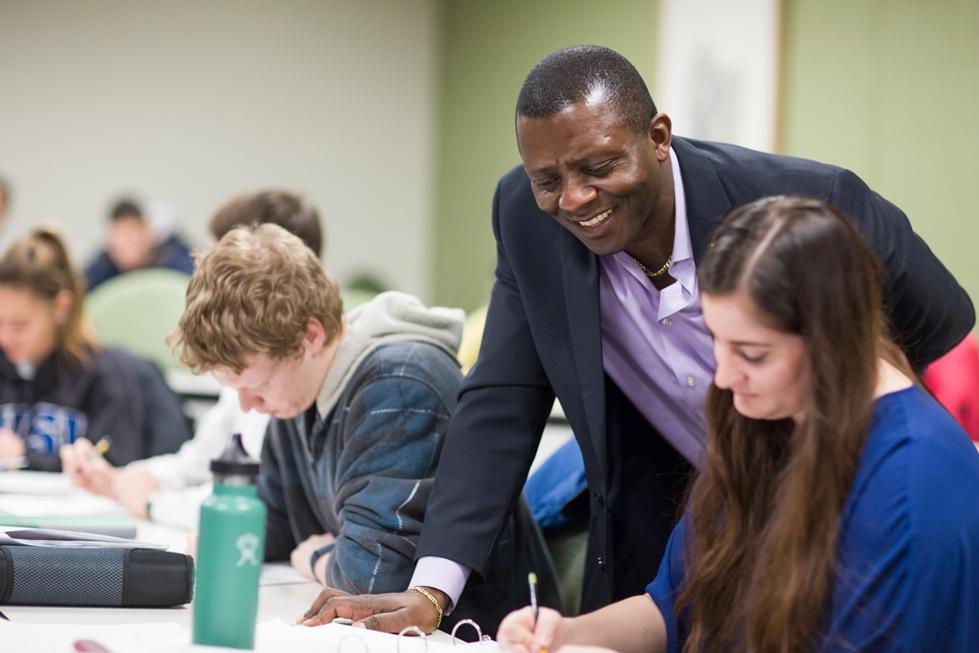
Tuition for Grand Valley students will increase for the 2016-2017 academic year; the university’s budget for financial aid increased by 9 percent.
“Grand Valley is efficient and effective,” said David Hooker, chair of the Board of Trustees. “This budget allows us to focus on student affordability. We understand the need for financial aid for our students. Our budget strategies have allowed us to increase aid by a substantial amount this year. Grand Valley educates a workforce and is keeping talent here in Michigan. We know that graduates are staying in the state, getting jobs and giving back.”
In fall 2015, 59 percent of all undergraduates received gift aid, and of the 2014-2015 graduates who earned a degree in four years or less, 31 percent had zero debt. The university is expected to receive $68.2 million in state funding, some of which is awarded to Grand Valley based on performance in key areas such as retention and graduation rates.
The university illustrates operational efficiency with administrative costs per student more than $800 lower than the average Michigan university’s administrative costs. That efficiency results in $17 million of savings being given back to Grand Valley students and their families.
Trustees also appointed John C. Kennedy as chair and Mary Kramer as vice chair. Kennedy is president and CEO of Autocam Medical and Kramer is publisher of Crain’s Detroit Business and corporate vice president of its parent company, Crain Communications.
For more information about the university’s performance, visit gvsu.edu/accountability.
Hauenstein Center launches podcast
The Hauenstein Center for Presidential Studies has launched a new podcast featuring leading thinkers, authors, historians and academics in a series focused on finding common ground between progressive and conservative viewpoints on issues including history, politics, culture, the arts and more.
Available on iTunes, the podcast series features well-known guests talking with host Joseph Hogan, who organizes the center’s Common Ground Initiative. New episodes are released weekly.
Guests include Maureen Corrigan, NPR’s “Fresh Air”; Daniel McCarthy, The American Conservative; H.W. Brands, historian and author; and E.J. Dionne, Washington Post.
For more information, visit HauensteinCenter.org/podcast.
Students work at Cannes festival, walk red carpet
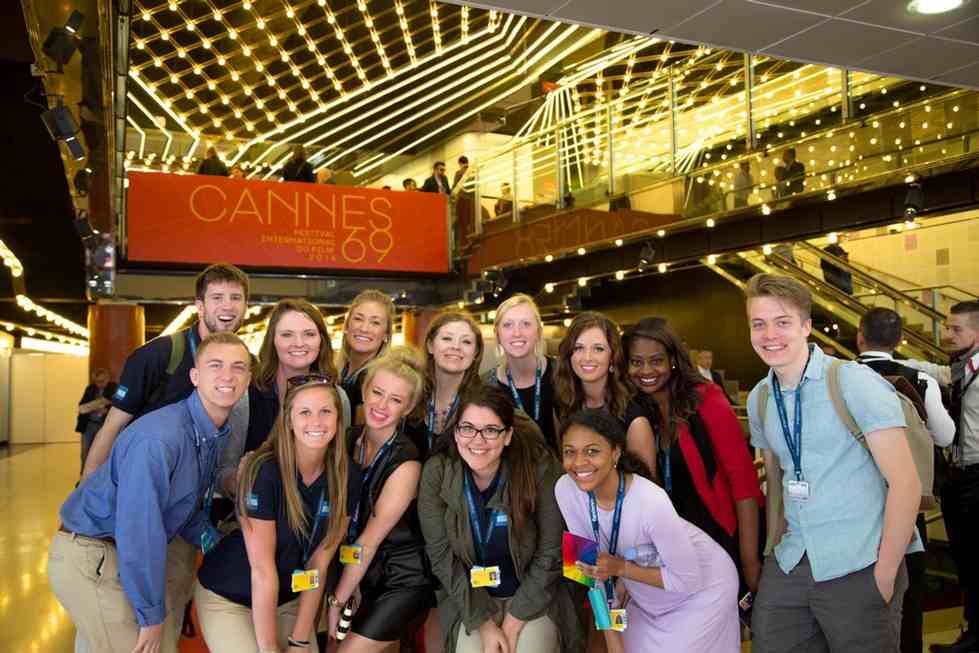
Students who are majoring in hospitality and tourism management learned event management skills while working at one of the world’s premiere events, the Cannes International Film Festival.
photo courtesy of Lorie Tuma
Sixteen students studying hospitality and tourism management spent two weeks in France working behind the scenes at the 69th annual Cannes International Film Festival.
The students traveled to Cannes May 7-23, coordinating events in the American Pavilion, where press panels, round-table discussions, networking and meetings took place, and where celebrities came to mingle.
The experience was sponsored by the College of Community and Public Service, and students were selected for the Cannes trip after an application and interviewing process.
Sarah Gonzales, a junior from Mt. Pleasant, said the trip to Cannes was her first time traveling abroad. She helped set up press panels, assisted speakers and helped prepare the conference room at the pavilion.
“We had to make sure the events ran smoothly, right down to making sure the technical equipment was working properly,” said Gonzales. “The experience solidified my love for coordinating events. It was an incredible opportunity to immerse myself in another culture while learning about event planning. That’s why I chose Grand Valley — to get these unique experiences.”
The students saw celebrities visit the pavilion, like Carrie Fisher and Woody Allen, who was with cast members of his movie, “Cafe Society,” including Blake Lively, Kristen Stewart and Jesse Eisenberg.
Allison Bis, a senior from Midland, said helping with round-table events and answering questions helped her learn about French culture and made her feel more certain about her professional future.
“I was a biomedical science major before switching to event management,” Bis said. “This experience made me realize I made the right decision and has given me more confidence as I prepare to enter the workforce.”
Lorie Tuma, assistant professor of hospitality and tourism management, said students had the opportunity to work on their professional skill set and experience first-hand what it’s really like in the industry.
“It’s seldom when we have the opportunity to place students in an international setting to run an event,” Tuma said. “Cannes is one of the most elegant and prestigious events in the industry and it’s all impromptu. Students have to learn to be flexible while working with A-list celebrities. This type of experience gives them the skills they need to embrace the industry.”
The students said one of the highlights of the trip was having the opportunity to walk a portion of the red carpet ahead of the celebrities.
Intern cares for cheetahs in southern Africa
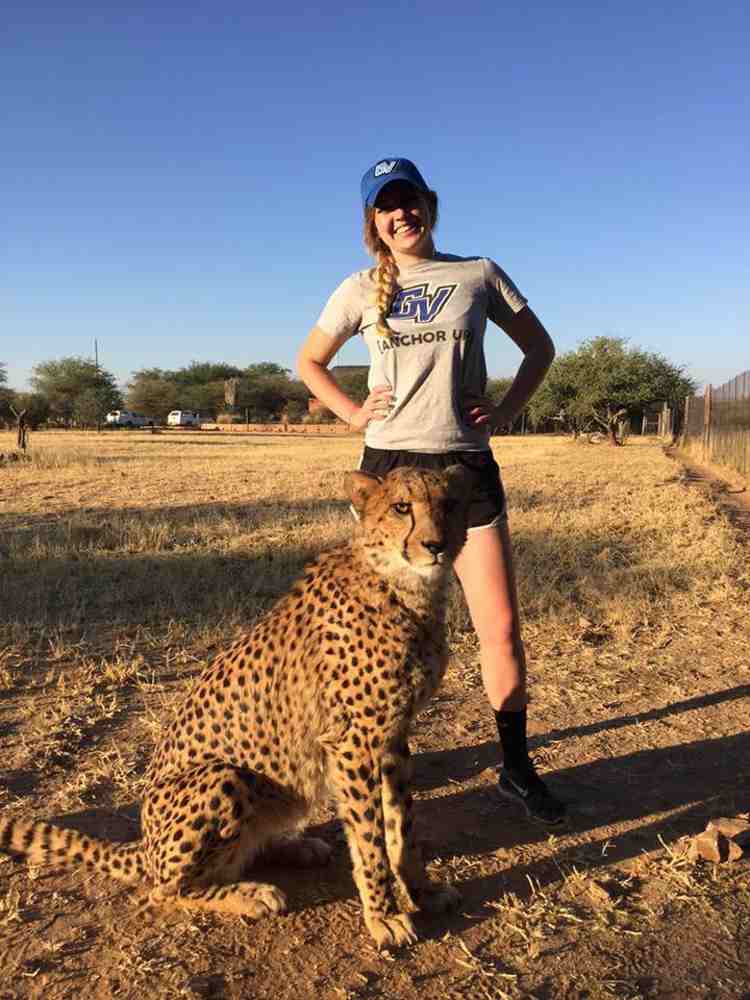
Erin Vargo stands behind a cheetah at the Cheetah Conservation Fund in Namibia, where she worked as a summer intern.
A Grand Valley student spent her summer taking a walk on the wild side by working with cheetahs in Otjiwarongo, Namibia.
Erin Vargo, a senior biology major from Spring Lake, was an intern at the Cheetah Conservation Fund, which is the world’s leading organization committed to preventing the extinction of wild cheetahs.
As an intern, Vargo wore many hats. Her daily responsibilities included caring for the animals at the facility, and giving informational speeches to tourists while feeding the more sociable “ambassador” cheetahs. She also took detection dogs into the reserve to search for cheetah scat, which geneticists analyze to see which species the cheetahs are eating.
While those responsibilities may not be glamorous, Vargo said new opportunities are available at the facility if interns simply express interest. “I talked to the veterinarians about helping with a surgery and got to assist with the autopsy of a sheep,” Vargo said. “I also helped with 3 a.m. check-ins on one of our pregnant dogs, and if orphaned cubs were to come in, I would get to help monitor and bottle feed them.”
Vargo’s desire to work with cheetahs blossomed during her childhood. “Ever since I can remember, I’ve had this expanding interest to, at first, play with cheetahs and make my parents purchase every cheetah stuffed animal in sight,” Vargo said. “I knew eventually I wanted to work alongside them, not only as a zookeeper, but as a spokesperson for the conservation of their environment as well.”
With grandiose dreams and aspirations to work hand-in-paw with cheetahs, Vargo had to look outside of the U.S. for her ideal experience.
“A vast majority of the internships I found in the U.S. were more generalized ‘large carnivore’ or ‘big cat’ internships,” Vargo said. “I eventually came across the Cheetah Conservation Fund, located in Nambia — ‘the cheetah capital of the world.’ I didn’t feel the slightest compulsion to even finish reading the details of the internship. I applied right then.”
Former MAREC transforms into innovation hub
Grand Valley opened a new co-working space in its business innovation center in downtown Muskegon. This new space will help build and launch innovative businesses throughout the region.
The Muskegon Innovation Hub at Grand Valley, formerly the Michigan Alternative and Renewable Energy Center, will provide all types of business support services for entrepreneurs, startups and growing businesses.
The new co-working space, named CoLaunch, is specifically designed to create a community where entrepreneurs and startups can work in a collaborative environment as they build their businesses. CoLaunch will be available on a drop-in or month-to-month subscription basis and will provide a wide variety of amenities.
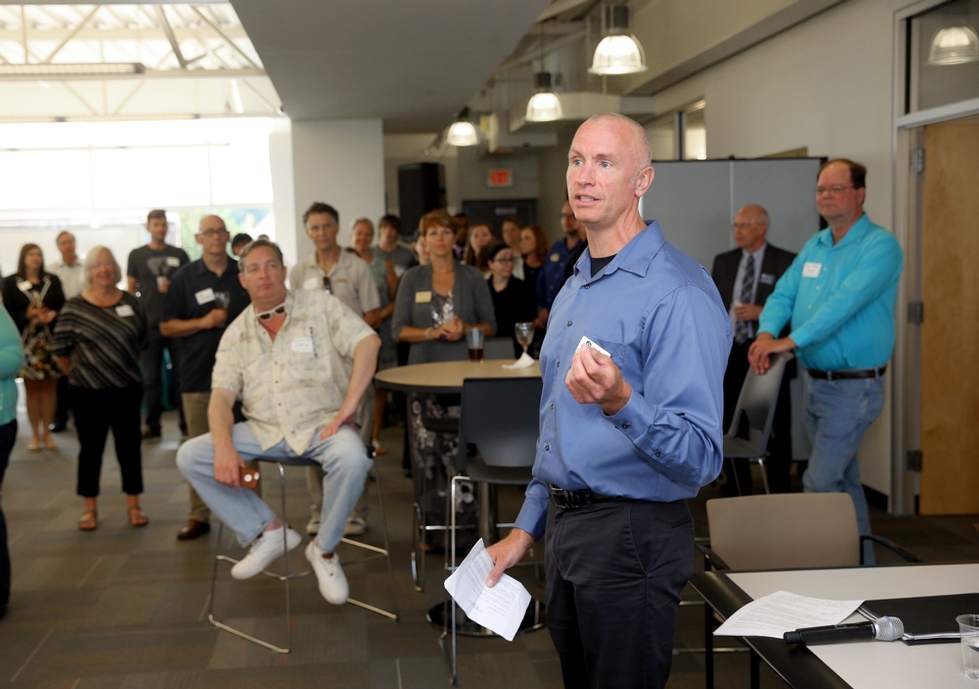
Kevin Ricco, director of the Muskegon Innovation Hub and CoLaunch, addresses participants during an open house in June.
“With this new co-working space and making our business incubation efforts more broad to include more than just alternative energy, we’re really hoping to attract people who are doing things that are new and different and help them get off the ground successfully,” said Kevin Ricco, director of the Muskegon Innovation Hub and CoLaunch.
Ricco said the Muskegon Innovation Hub is customer-service oriented and offers a highly personalized experience for each tenant. The Hub has experts available to help with product development, technology, product commercialization, entrepreneurship, business planning and modeling, and more. Tenants also have access to in-house expertise from the Michigan Small Business Development Center, as well as other business resource partners.
The Hub held a community open house June 20 to showcase its capabilities and allow the public to explore the new CoLaunch space.
The Muskegon Innovation Hub also creates custom business development solutions for each individual client and provides programming and resources that match individual needs, an approach that isn’t provided by all business incubators.
“By expanding the scope of our business development efforts, we think that the new Muskegon Innovation Hub will provide useful tools and expertise to entrepreneurs and innovators all across the region who are looking for custom business support,” said Ricco.
Faculty expert speaks about terrorism, alumna covers mass shooting
Jonathan White, terrorism expert, said terrorism is complex and civilized conversation is needed instead of heated debate.
White, professor of interdisciplinary studies and executive director of the Homeland Defense Initiative at Grand Valley, made the comment during a news conference June 13 at the DeVos Center, following the June 12 mass shooting at Pulse in Orlando, Florida, which killed 49 people and injured 53 others.
White said an attack like the one in Orlando is an example of the nature of modern terrorism, acted out on the streets or in the shadows. He said he is not optimistic change will take place until a civil conversation can happen instead of “political sides screaming simplistic phrases at each other in seven-second sound bites.”
Stephanie Allen, ’13, covered the breaking news story for the Orlando Sentinel.
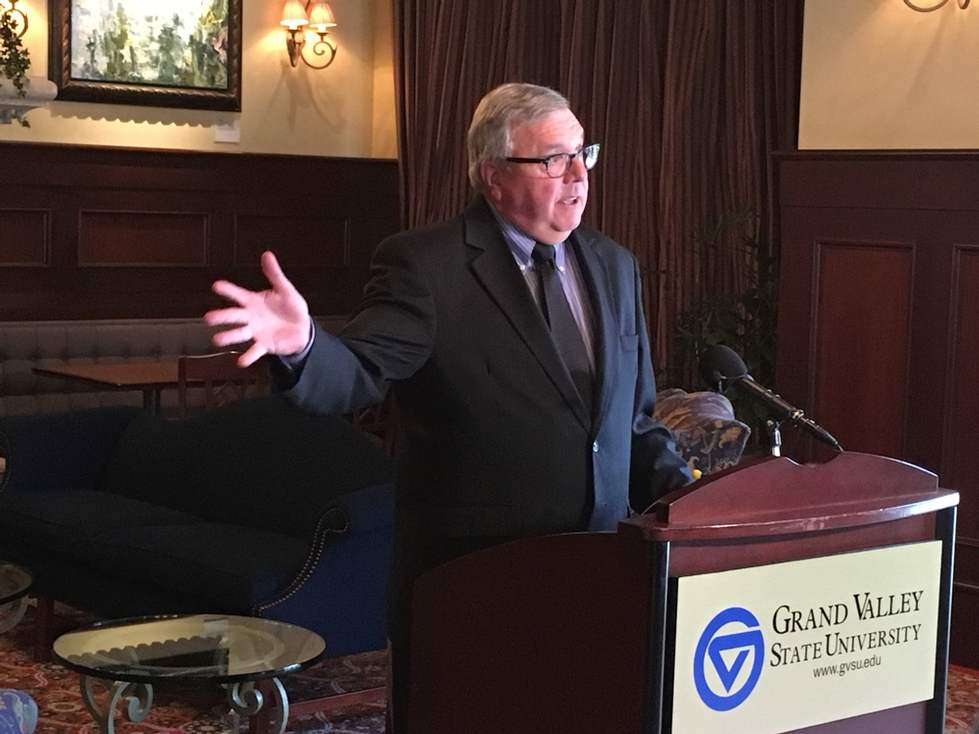
Terrorism expert Jonathan White takes a question from a reporter during a June 13 news conference about the mass shooting in Orlando, Florida.
“I live just blocks from the club, so I immediately threw on some clothes and ran out the door. I was in shock, but quickly switched to work mode,” Allen said. “The gravity of what happened didn’t really hit me until the next day when I had time to process everything.”
Allen worked for a newspaper in Lakeland, Florida, before joining the Sentinel staff.
Engineering alumnae will start doctoral programs
A group of women biomedical engineering graduates will take what they learned at Grand Valley and develop original research at doctorate programs across the U.S. this fall.
They will conduct research that focuses on different areas of neuroengineering, a specialized discipline within biomedical engineering that seeks to understand and enhance neural systems.
• Negin Nadvar, ’10, from Iran, will attend the University of Michigan;
• Priya Balasubramanian, ’14, from India, Marquette University;
• Lauren Hickox, ’14, from Grand Rapids, University of Pennsylvania;
• Nadina Zweifel, ’16, from Switzerland, Northwestern University.
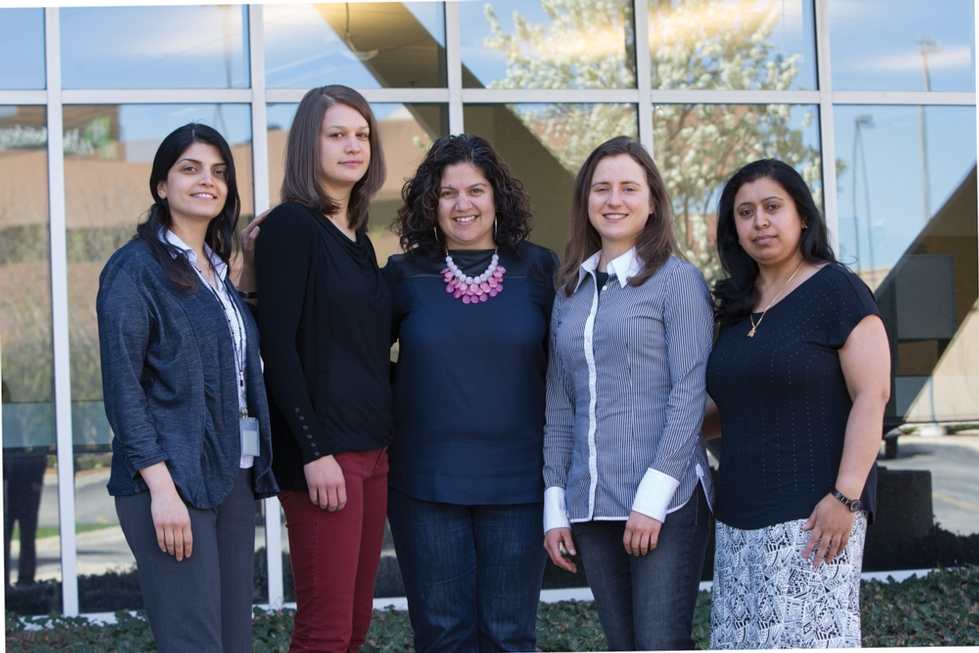
Pictured from left are Negin Nadvar, Nadina Zweifel, Samhita Rhodes, Lauren Hickox and Priya Balasubramanian.
Samhita Rhodes, associate professor of engineering, said going from a teaching school like Grand Valley to some of the most competitive and well-known research schools in the country is an incredible feat.
“Getting into a reputable Ph.D. program is extremely difficult,” said Rhodes. “You are competing on a global stage. The requirements are stringent and the odds are stacked against you, but these women have exceptional drive, a ferocious work ethic and remarkable talent.”
Nadvar worked for Stryker as an engineer in research and development for several years before deciding to apply for doctoral programs. She said receiving a doctorate was always part of her plan, but she wanted to get industry experience first. Balasubramanian worked for Van Andel Institute and said the research she conducted there sparked her interest in pursuing a doctorate.
Zweifel will work at Northwestern’s Neuroscience and Robotics Lab. She said pursuing a doctorate was a big decision. “I asked myself a lot of questions before applying for programs, ‘Is this where I want to go?’ and ‘What do I really want to do?’ Once I found the answer, I had to be very persistent in meeting people and networking,” she said.
Hickox said it’s important to push for what you want. She began teaching at Grand Valley after graduating from the university with bachelor’s and master’s degrees. She will perform research on bone and joint biomechanics at Penn.
“I was able to conduct more research while teaching, so the natural next step was to go for my Ph.D. Grand Valley was a great starting point for my research,” said Hickox.

